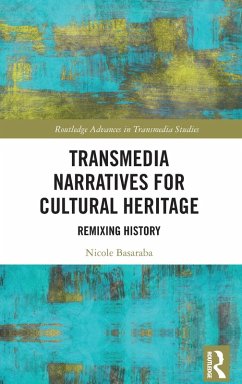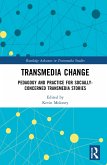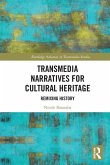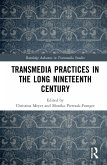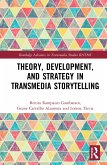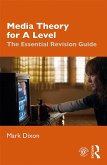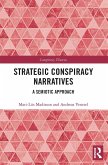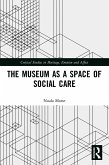Transmedia Narratives for Cultural Heritage focuses on theoretical approaches to the analysis and creative practice of developing non-fiction digital transmedia narratives in the rapidly growing cultural heritage sector.
This book applies a media-focused transdisciplinary approach to understand the conventions of emerging digital narrative genres. Considering digital media's impact on narrative creation and reception, the approach, namely remixed transmedia, can aid practitioners in creating strategic non-fiction narratives for cultural heritage. These creations also need to be evaluated and a digital-media focused 'ludonarrative toolkit' allows for the critical analysis of the composition and public participation in interactive digital narratives. This toolkit is applied and exemplified in genres including virtual museums, serious games, and interactive documentaries. The book also includes a seven-phase theoretical framework that can assist future creators (and project managers) of non-fiction transmedia 'mothership' narratives; and a methodology (based on 'big data analysis') for how to invent new cultural heritage narratives through bottom-up remixing that allows for public inclusion. Two transnational case studies on the 11 UNESCO World Heritage Australian Convict Sites and the Irish National Famine Way demonstrate the seven-phase framework's applicability.
As many scholars across disciplines are increasingly creating digital narratives on historical topics for public consumption in various forms, the theoretical foundations and practical project management framework will be useful for scholars and project teams in the domains of transmedia studies, interactive narratives, cultural heritage, media studies, comparative literature, and journalism.
This book applies a media-focused transdisciplinary approach to understand the conventions of emerging digital narrative genres. Considering digital media's impact on narrative creation and reception, the approach, namely remixed transmedia, can aid practitioners in creating strategic non-fiction narratives for cultural heritage. These creations also need to be evaluated and a digital-media focused 'ludonarrative toolkit' allows for the critical analysis of the composition and public participation in interactive digital narratives. This toolkit is applied and exemplified in genres including virtual museums, serious games, and interactive documentaries. The book also includes a seven-phase theoretical framework that can assist future creators (and project managers) of non-fiction transmedia 'mothership' narratives; and a methodology (based on 'big data analysis') for how to invent new cultural heritage narratives through bottom-up remixing that allows for public inclusion. Two transnational case studies on the 11 UNESCO World Heritage Australian Convict Sites and the Irish National Famine Way demonstrate the seven-phase framework's applicability.
As many scholars across disciplines are increasingly creating digital narratives on historical topics for public consumption in various forms, the theoretical foundations and practical project management framework will be useful for scholars and project teams in the domains of transmedia studies, interactive narratives, cultural heritage, media studies, comparative literature, and journalism.

